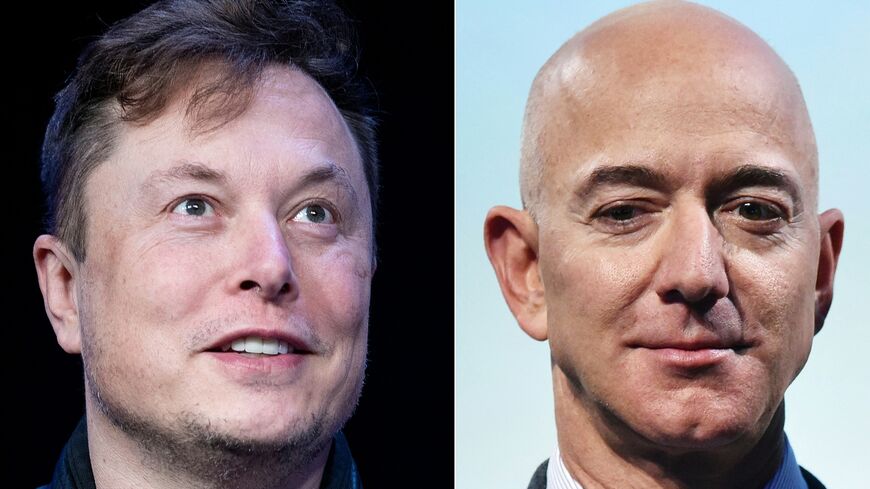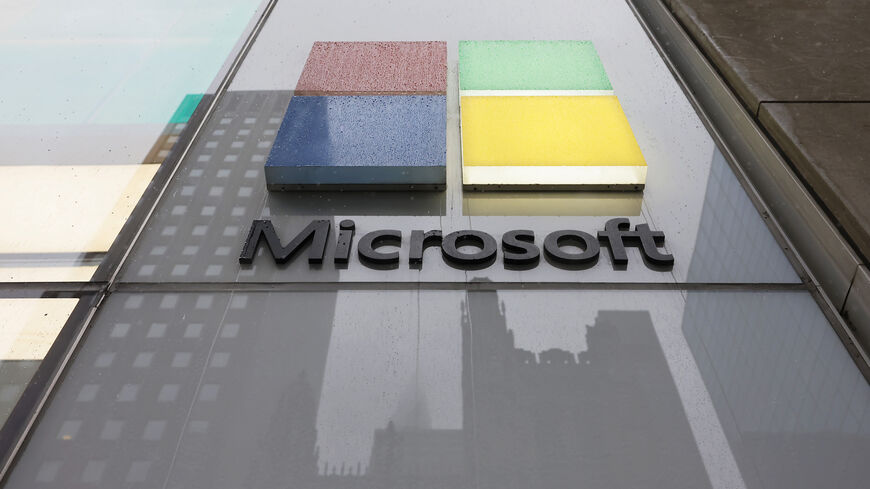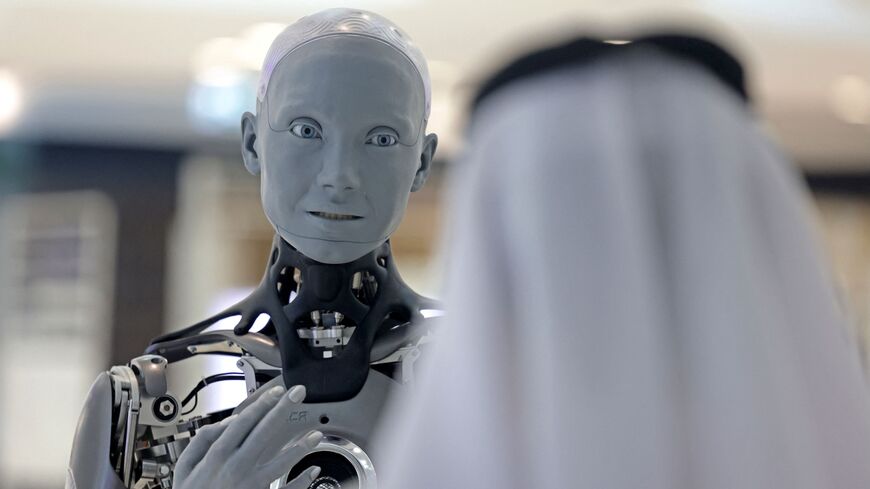With China rivalry in mind, UAE's Sheikh Tahnoon hits tech reset in US visit
Sheikh Tahnoon bin Zayed Al Nahyan, the United Arab Emirates’ national security adviser and an influential brother of the country’s president, visited Washington this month.

The visit to Washington this month by Sheikh Tahnoon bin Zayed Al Nahyan, the United Arab Emirates’ national security adviser and an influential brother of the country’s president, signals a reset of US-Emirati ties and affirms that the United States is Abu Dhabi's preferred partner over China in the advanced technology sphere.
Sheikh Tahnoon’s visit on June 5-7 was part of a strategy that had been in the works for over a year. The senior UAE official spent two days in Washington, where he met with several officials including national security adviser Jake Sullivan, Deputy Secretary of State Kurt Campbell and former President Barack Obama. Campbell recently handled the China file under President Joe Biden.
Sheikh Tahnoon also met with US Secretary of Commerce Gina Raimondo in Washington as well as Special Presidential Coordinator for Global Infrastructure and Energy Security Amos Hochstein, White House Coordinator for the Middle East and North Africa Brett McGurk and Assistant Secretary of State for Near Eastern Affairs Barbara Leaf.
Sheikh Tahnoon then traveled to Seattle, where he met with senior Microsoft figures including CEO Satya Nadella and co-founder Bill Gates on June 7. Plans for G42 and the Silicon Valley giant were high on the agenda.
Two-year reset
UAE-US ties had soured after the attack on Jan. 17, 2022, by Yemen’s Houthi rebels in Abu Dhabi against three oil tanker trucks and airport infrastructure. UAE President Sheikh Mohammed bin Zayed was reportedly upset that Washington had abandoned the Emirates in its time of need and relations between the two countries reached their lowest point in decades.
Later that year, Emirati Ambassador to the United States Yousef Al Otaiba told Biden administration officials that the two countries needed to set aside time to reset, particularly in regard to cybersecurity and business.
In Washington in May 2023, Sheikh Tahnoon signaled to the Americans that he wanted Washington to be Abu Dhabi’s preferred technology partner, according to a source with knowledge of the discussions. The source said Sheikh Tahnoon indicated that the UAE was prepared to address US concerns about protecting sensitive American technologies, to maintain a competitive edge over China.
Sheikh Tahnoon chairs some of the country’s most important funds and businesses and is responsible for around $1.5 trillion in assets. Among them is G42, the Middle East’s largest artificial intelligence company. He also chairs the sovereign wealth fund ADQ as well as First Abu Dhabi Bank, International Holding Group and others.
UAE funds and companies are looking to invest billions of dollars into foreign assets, and the United States, especially the country's technology sector, is the best place to invest it, the source told Al-Monitor, adding that US officials are receptive to UAE officials saying they are committed to invest in the long term.
Afshin Molavi, senior fellow at the SAIS Foreign Policy Institute at Johns Hopkins, told Al-Monitor that Sheikh Tahnoon "is one of the most sought-after figures among financiers and investors," who all want face time with the senior official. "He likely had to decline dozens of meeting requests," Molavi added.
We had a productive discussion with @BarackObama on joint efforts to advance global education initiatives by leveraging technology to transform educational systems, fostering scientific progress, and providing lasting benefits for future generations. pic.twitter.com/QJcLa7m6cX
— Tahnoon Bin Zayed Al Nahyan (@hhtbzayed) June 5, 2024
The senior Emirati official has made several quiet trips to the United States over the last year, but the recent visit was the first that was well publicized. There was even a press statement, pointing to the significance of the trip.
In recent months, there have been a spate of UAE-US deals across various sectors.
In energy, for example, UAE state-run renewables company Masdar announced in March that it would acquire a 50% stake in Terra-Gen Power Holdings II, one of the largest renewable energy producers in the United States.
On May 20 the Gulf country’s main oil firm, Abu Dhabi National Oil Company, bought a stake in NextDecade Corp’s natural gas export project in Texas. This first US acquisition also gives it a 20-year-supply deal. ADNOC is also considering setting up a commodities trading desk in the United States, according to reports.
We discussed with @SatyaNadella ways to strengthen collaboration in cutting-edge technology & the latest advancements in AI. Our commitment to fostering global partnerships in advanced technology sectors & leveraging its potential to transform industries & enhance quality of life pic.twitter.com/UgsEmPE5g1
— Tahnoon Bin Zayed Al Nahyan (@hhtbzayed) June 7, 2024
G42 and China
On the technology side, in April, Microsoft invested $1.5 billion into G42. The deal was a byproduct of closed-door negotiations between the US government and the Gulf firm in which it agreed to divest from China in favor of US technology, Bloomberg reported at the time.
G42 divested from China in February after it sold its stake in ByteDance, the Chinese company that owns TikTok, a social media app. “It was not a simple step to take, and G42 likely paid some costs, but they understood that the pain is outweighed by the gains accrued by partnering with the most advanced US tech companies,” Molavi said, adding that the Microsoft investment in G42 would not have been achieved “without the UAE pledge to distance itself from China on the most advanced technology, notably AI.”
One of Sheikh Tahnoon’s main priorities during the trip was to deepen ties between the American advanced tech sector and the UAE to consult with the United States on national security issues in the region and to convey the message that despite UAE President Mohammed bin Zayed’s visit with a large delegation to China the week before, the UAE's evolving priorities over the past year are increasingly US focused.
Sheikh Tahnoon and his delegation also held discussions about export controls, according to a source with knowledge of the talks, after the US Bureau of Industry and Security slowed down exports of critical technology to Middle Eastern countries because of concerns from Washington that Beijing could access sensitive AI equipment through the UAE's re-exporting of the chips. The move was first reported in August 2023, when the United States expanded its restrictions on Advanced Micro Devices and Nvidia AI chips beyond China to some unspecified Middle Eastern countries.
Thea Rozman Kendler, assistant secretary of commerce for export administration at the Bureau of Industry and Security, traveled to the UAE and the Gulf in May. During Kendler's meetings, the Emiratis agreed to work with the Americans to improve their export control regime on the UAE side.
Some of the companies hit by the export delays have been frustrated, according to Al-Monitor's source, so the BIS has been committed to speeding exports up in the region and resolving those issues.
During his visit to the United States, Sheikh Tahnoon also sought clarity on the US Committee on Foreign Investment in the United States' rules, which determine which foreign companies can invest in American firms. Chinese companies were among the biggest foreign investors in US companies in the early 2000s, but the rules were significantly tightened after President Obama was in power (2009-2017), as Washington grew concerned about the threat Beijing posed to its security.
Going forward, some experts believe that advanced technology ties will deepen between the UAE and US companies. The source said that there will be more announcements coming out of the Microsoft/G42 partnership soon.
Molavi said, “The Microsoft investment in G42 has put a halo around the company and sent a clear message to other Silicon Valley and US advanced tech players: The UAE is a vetted partner for US companies."
He said that China and the UAE will remain important trade partners and the two sides will likely increase their cooperation in fields ranging from renewable energy to logistics, but advanced technology cooperation will deteriorate.
Robert Mogielnicki, a senior resident scholar at the Arab Gulf States Institute in Washington, said, “My sense is that Emirati officials want to maintain momentum in the tech cooperation domain and form more high-profile strategic partnerships."
He added, “We’ll still see strong especially economic ties between the UAE and China. If the biggest and best partnerships are reserved for US actors, that leaves plenty of room for forging other global ties.”
Mogielnicki said recent developments in advanced technology indicate that when push comes to shove, the UAE government and businesses prefer to work with top-tier US firms to their Chinese counterparts.
Reaching Global South
Meanwhile, Washington sees G42 as a tech conduit to the Global South, where Microsoft can work with the UAE tech firm in other countries to develop data centers and sovereign AI programs. "Microsoft sees G42 and the UAE as the platform to engage Global South middle powers and develop a secure set of advanced technologies and AI that will satisfy government concerns about protection, data protection, privacy, security," Al-Monitor's source said.
For example, on March 6, G42 and Kenya EcoCloud signed a memorandum of understanding to develop a one-gigawatt data center in the East African country powered by geothermal energy.
“The UAE offers a third choice to other countries who don’t feel comfortable with either Chinese and US tech offerings or don’t want to choose between the two," the source added.
Molavi noted that since 2021, the UAE has been signaling to the world that its foreign policy will mostly be driven by its economic needs. In a way, he said, Sheikh Tahnoon embodies this new policy approach.
“The UAE does not want to choose sides in a US-China cold war, but when it comes to their economic interests, they were willing to carve out one sphere at least where they [do] chose sides,” Molavi said.
“So if you believe that your foreign policy and national security should be driven by your visions of economic policy and development — as the UAE has clearly stated — then there is no one better placed to make those calculations on a daily basis than Sheikh Tahnoon,” he added.







